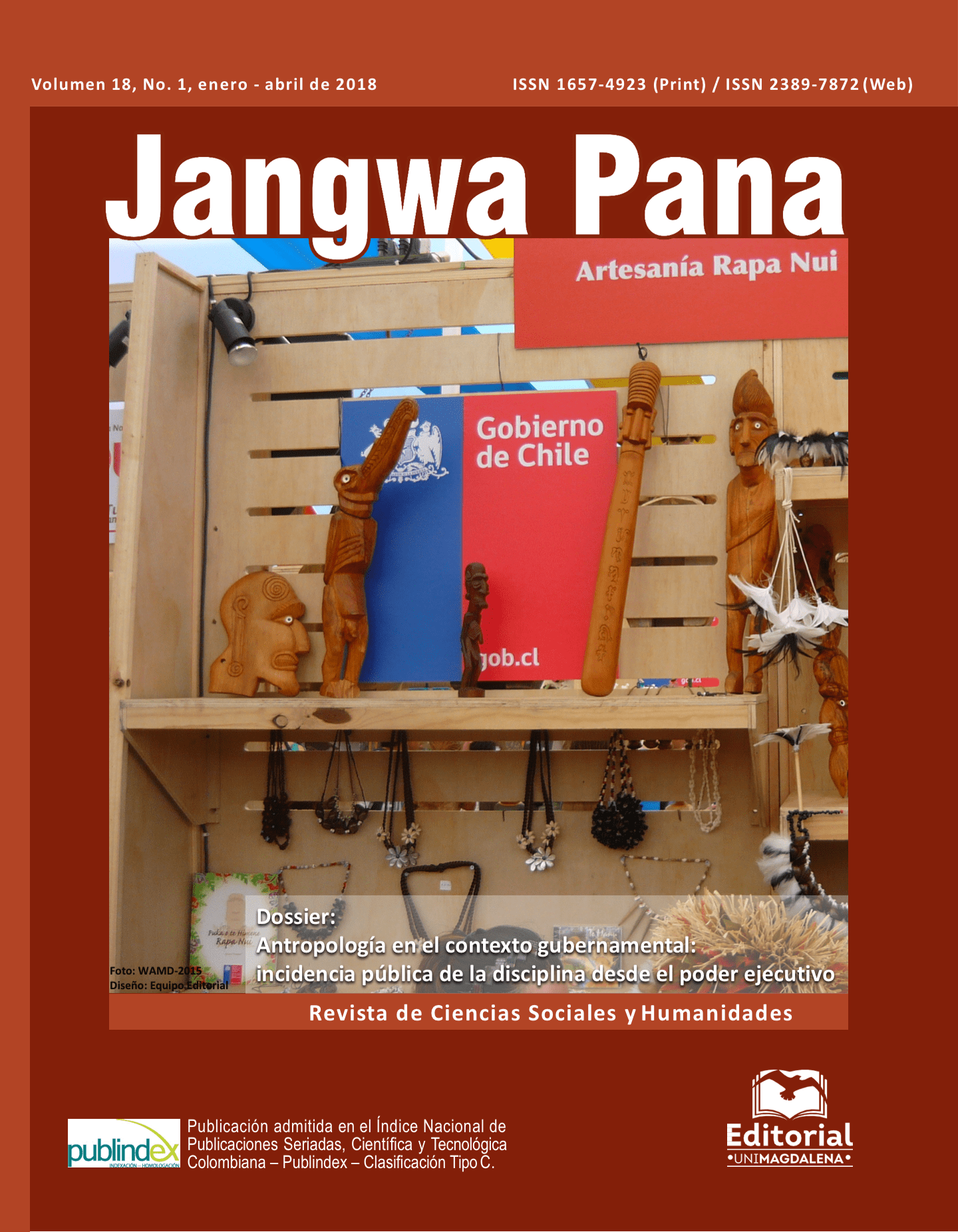The Traces of Armed Conflict in Collective Mental Health
Main Article Content
Abstract
Within the framework of the implementation process of the Integral Model of Health Care - MIAS, it is necessary to recognize and understand the impact that the armed conflict has had on mental health, especially in the most affected territories. This article is part of the research called "Collective mental health: impacts on people affected by armed conflict. Caldono, Cauca. 2017 "and provides elements for the development of interventions for the Promotion of Collective Mental Health, considering that peace, social justice, acceptable housing conditions, education and employment (WHO, 2004) are indispensable prerequisites for this. so that the identification and description of the effects that the armed conflict has generated on the family-community-territory relationship in the Municipality of Caldono, Cauca, constitute inputs for the development of interventions in a post-conflict scenario. The objective was to recognize the impact that the armed conflict has generated in the collective mental health of the indigenous and peasant community of the municipality of Caldono from the family-community-territory relationship. This qualitative phenomenological research, used for the collection of information observation and in-depth interviews with key informants. The information obtained was organized according to the dimensions of the social and cultural structure proposed in Madeleine Leininger's theory of the Rising Sun, identifying that the community of Caldono, due to its experiences with the armed conflict, has an impact on the collective mental health evidenced for invisible wounds of war; achieving in the collection of information recognize different problems that affect the community and the territory, including human suffering, social and territorial stigmatization and despair, among others. Likewise, other experiences that have contributed to strengthen their collective processes of organization, solidarity and resistance, as strategies for the conservation of life and the right to live in their territories, emerge around traumatic events.
Keywords: Collective Mental Health, armed conflict, impact, family, community and territory
Downloads
Article Details
References
Alcaldía Municipal de Caldono. (2017). Consolidado de Víctimas Conflicto Armado.
Arias-López, B.E. (2014). La potencia de la noción de resistencia para el campo de la salud mental: Un estudio de caso sobre la vida campesina en el conflicto armado colombiano. Salud Colectiva, 10 (2), 201- 211. Recuperado de:
http://www.scielo.org.ar/scielo.php?script=sci_arttext&pid=S1851-82652014000200005
Bang, C. (2014). Estrategias comunitarias en promoción de salud mental: Construyendo una trama conceptual para el abordaje de problemáticas psicosociales complejas Psicoperspectivas, 13 (2), 109-120. Recuperado de: http://www.redalyc.org/pdf/1710/171031011011.pdf
Foucault, M. (1999). Estética, ética y hermenéutica: Obras esenciales. Volumen III. Barcelona: Paidós.
Garcés, A.R. (2016). Identidades, territorios y conflictos: Hacia una antropología contextual e histórica en el Cauca, sur de Colombia. Jangwa Pana, 15 (2), 223 – 239.
Gómez, C; Tamayo, N; Buitrago, G; Guarnizo, C; Garzón, N; Eslava, J; de Vries, E; Rengifo, H; Rodríguez, A. & Rincón, C. (2016). Violencia por conflicto armado y prevalencias de trastornos del afecto, ansiedad y problemas mentales en la población adulta colombiana. Revista Colombiana de Psiquiatría, 45 (1), 147– 153. Recuperado de: http://www.scielo.org.co/pdf/rcp/v45s1/v45s1a20.pdf
Ministerio de Salud y Protección Social (2013). Plan Decenal de Salud Pública 2012 - 2021. Bogotá.
Osorio, F. (2001). Entre la supervivencia y la resistencia. Acciones colectivas de población rural en medio del conflicto armado colombiano. Cuadernos de Desarrollo Rural. Revista Javeriana, 47, 55 – 80. Recuperado de:
http://revistas.javeriana.edu.co/index.php/desarrolloRural/article/viewFile/2065/1309
Pardo, Y. & González, M. (2007). Espacio y territorio en la práctica de enfermería comunitaria. Revista Aquichan, 7 (2), 189 – 198. Recuperado de:
http://aquichan.unisabana.edu.co/index.php/aquichan/article/view/112/225
Pozzi, D. & Tansini, M. (2013). Documental Resistencia Comunitaria [Archivo de Video]. Recuperado de: https://www.youtube.com/watch?v=ko55oJtJNfY
Hewitt, N., Juárez, F., Parada, A. J., Guerrero, J., Romero, Y. M., Salgado, A. M., & Vargas, M. V. (2016). Afectaciones psicológicas, estrategias de afrontamiento y niveles de resiliencia de adultos expuestos al conflicto armado en Colombia. Revista Colombiana de Psicología, 25 (1), 125 - 140. DOI: 10.15446/rcp.v25n1.49966
Rodríguez, J; De La Torre, A. & Miranda, C. (2002). La salud mental en situaciones de conflicto armado. Revista Biomédica, 22, 337 - 346. Recuperado de: https://www.revistabiomedica.org/index.php/biomedica/article/viewFile/1183/1298
Tobón, F.A. (2005). La salud mental: una visión acerca de su atención integral. Revista Facultad Nacional de Salud Pública, 23 (1). Recuperado de: http://www.redalyc.org/pdf/120/12023113.pdf
Torres, F. (2017) Perspectivas para la intervención en lo social desde los retos del proceso de paz colombiano. Jangwa Pana, 16 (1), 112 - 121 pp. DOI: 10.21676/16574923.1961
Zurro, A.M. & Solà, G.J. (2011). Atención familiar y salud comunitaria. España: Elsevier. Recuperado de: http://paginas.facmed.unam.mx/deptos/sp/wp-content/uploads/2013/12/anexo-133-APS_Martin-Zurro-y-Jodar.pdf

